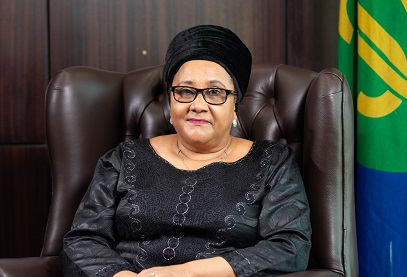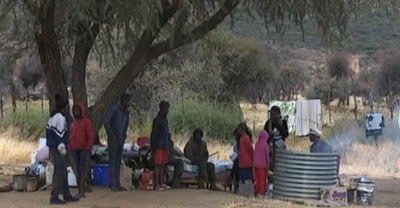
SADC Executive Secretary talks Southern Africa Liberation Day

By Dr. Stergomena Lawrence Tax
SADC Executive Chair.
Today, we once again commemorate the Southern Africa Liberation Day, as we remember the sons and daughters of the Region who paid the ultimate price, fighting for our political liberation and freedom of our Region. The blood of our sons and daughters was not in vain as the liberation struggle ushered in freedom and liberation across the SADC Region.
Since 2019, and following the decision of SADC Heads of States and Government taken in August 2018, in Windhoek, Namibia, SADC commemorates 23rd March as the Southern Africa Liberation Day.
This year’s SADC Liberation Day, comes in as the Region commemorated the 40th anniversary of SADC.
As we commemorate this day, we must take stock of the strides our Region has made towards obtaining our objectives of “Towards Economic Liberation”, and thus, our shared vision of a common future which will ensure advancement in economic well-being and the standards of living and quality of life of our people, freedom and social justice, and peace and security, and thus the SADC we want.
While we note and celebrate the recorded achievements, we need to remain mindful that we are yet to be fully liberated, until we win the economic liberation battle and attain full economic independence. To accelerate our socio-economic development, in a sustainable manner, for the benefit of SADC citizens, let us all, commit to the SADC Vision 2050 and the implementation of the SADC Regional Indicative Strategic Development Plan 2020-2030, which are based on a firm foundation of peace, security and democratic governance, and premised on three interrelated pillars: namely, industrial development and market integration; infrastructure development in support of regional integration; and social and human capital development; without losing focus on gender, youth, and environment and climate change as critical cross cutting issues.
To sustain peace and security that we have enjoyed since the region was liberated by the Founders and the attainment of political independence by Member States, let us all remain in solidarity and condemn in all possible ways, all forms of peace and security threats, including cyber-crime, terrorism, extremism and hate speeches, which threaten to reverse the gains made towards peace, security and economic development in the Region. SADC remains committed in ensuring that peace and stability is sustained.
Taking pride, and recognizing the great contribution, and sacrifices by the Founders of SADC, and foresight of the peaceful and progressive Region that we see today, the August 2019 Summit approved a Mechanism in Honour of the Founders of SADC. May I call upon all Member States to operationalise the Mechanism.
As we celebrate this day, and remember the history of Southern Africa, let us also make good use of the Hashim Mbita Publications which will shortly be available in English, French and Portuguese. This is the only Publication that has comprehensively and authentically documented the Southern African Liberation struggles. Printing and delivery to Member States is expected to be concluded by 30 June 2021. May I also encourage Member States to speed up the inclusion of Southern Africa Liberation history in the school curriculum for the benefit of the current and future generations.
Last week the Region lost one of its great leader who was dedicated to the development of Africa for the benefit of Africans, His Excellency Dr John Pombe Joseph Magufuli who was the President of URT. May his soul rest in eternal peace and may we cherish his outstanding contribution to SADC development.
As a Region, let us also remain resolute in the fight against COVID-19, which has inflicted a great deal of suffering and hardships on our economies and our people.












































